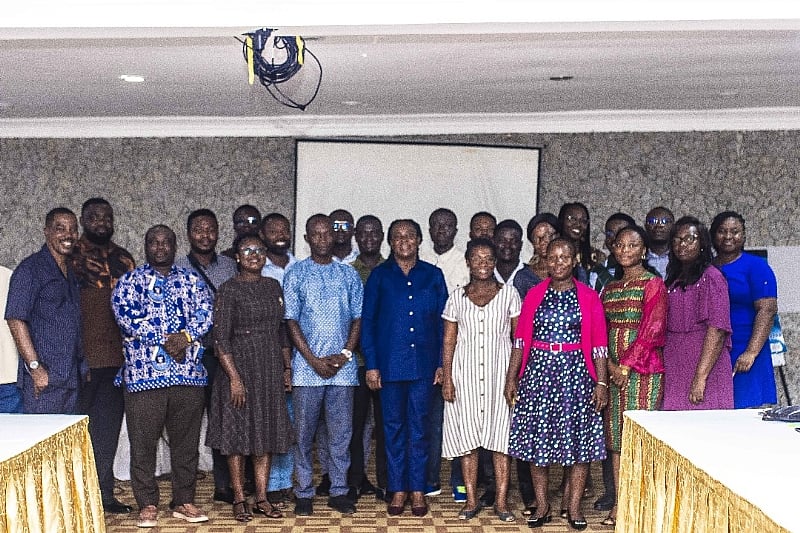Y-Check Ghana has successfully concluded Phase II of its adolescent health screening programme with a stakeholder dissemination forum in Cape Coast aimed at reviewing progress, sharing findings, and charting the next steps.
Held at the Capital Hill Hotel on Tuesday, June 17, 2025, the event brought together key players including education and health officials, headteachers, students, community leaders, and parents.
The dissemination forums provided a platform to discuss outcomes of the initiative and offer recommendations for enhancing adolescent health interventions in schools and communities.
This marks another step in the project’s broader goal of developing a sustainable model for routine adolescent health check-ups in Ghana.
Dr. Franklin Glozah, Deputy Principal Investigator of Y-Check Ghana and a Senior Lecturer at the University of Ghana’s School of Public Health, said the forum allowed stakeholders to reflect on progress and gather insights for future phases. “The project remains exploratory in nature,” he noted, while highlighting the need for further validation of preliminary findings.
Preliminary Health Outcomes Show Promise
According to Dr. Glozah, early data from Phase II point to noticeable improvements in the health of participating adolescents. Some conditions identified during the initial assessments showed reduced prevalence after a four-month follow-up. While cautiously optimistic, he emphasized the importance of subjecting these results to more rigorous evaluation.
He also revealed that findings from the project will be submitted to the World Health Organization (WHO) to inform future adolescent health policy guidelines.
Towards Phase III and National Scale-Up
Dr. Glozah disclosed that preparations are underway for a possible Phase III of the project, which will feature cluster randomised trials to assess the programme’s effectiveness. The next phase will compare outcomes between groups who participated in the Y-Check screenings and those who did not, in a bid to solidify evidence for future scale-up.
When asked about the prospects of national integration, Dr. Glozah clarified that while the Ghana team can provide recommendations, a decision on integration would fall within WHO policy frameworks. He noted that the initiative has added value by screening for health conditions, such as mental health issues, that are often overlooked in traditional school health programmes.
Stakeholder Endorsement and Future Steps
Stakeholders at the forum strongly endorsed the Y-Check programme and urged that efforts be intensified to institutionalise adolescent health screenings. Some called for the creation of a national policy that integrates such services into the National Health Insurance Scheme, while others suggested mobilising support from local authorities and MPs to fund and expand the initiative.
Dr. Glozah acknowledged ongoing collaboration with the Ghana Education Service and Ghana Health Service, and reiterated the potential of Y-Check findings to inform broader national strategies for adolescent well-being.
About the Y-Check Programme
Y-Check is a multi-country adolescent health initiative supported by the WHO and implemented in Ghana (Cape Coast), Tanzania (Mwanza), and Zimbabwe (Chitungwiza). It aims to explore the feasibility, acceptability, and cost-effectiveness of a sustainable health check-up model tailored for adolescents.
In Ghana, the programme targeted 2,001 adolescents aged 10 to 19, and involved two rounds of health check-ups, counselling, treatment, and referrals delivered by trained health professionals. Teachers, parents, and community leaders also played a critical role in shaping and evaluating the intervention.


